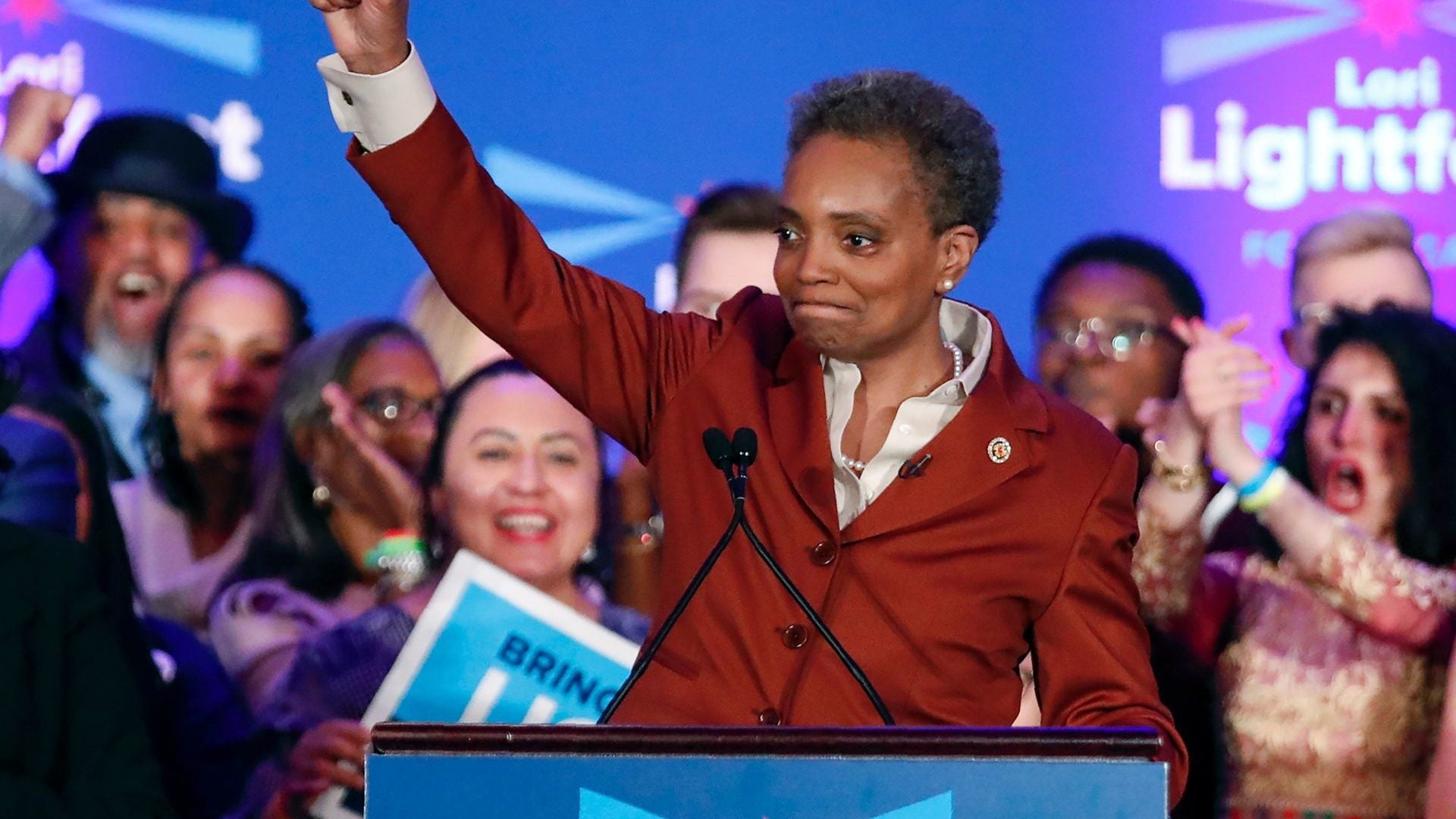
And the people’s choice was Lori Lightfoot.
On Tuesday, Chicagoans elected Lightfoot, a former prosecutor, to replace Rahm Emanuel as mayor of the city.
Lightfoot, in one fell swoop, became the first black woman, and the first openly gay person elected to the post.
And, according to the New York Times, the decision for Chicagoans was an easy one, with Lightfoot, who has never held an elected office before, easily beating out longtime politician Toni Preckwinkle, who had for years been viewed as a competitive candidate for the position. Yet, as of Tuesday night when Lightfoot claimed her victory, she had secured the majority vote in all 50 of the city’s wards.
“We were up against powerful interests, a powerful machine and a powerful mayor,” the mayor-elect said Tuesday night, according to the Times. “Nobody gave us much of a chance.”
And this is not a new angle for Lightfoot.
She has from the beginning positioned herself as someone who values equity, inclusion and transparency in government, as she mentioned to ESSENCE in an interview back in September.
“I’m a person who believes in the value of equity, inclusion and transparent government, getting rid of the up against them style of governance, and engaging people whose lives are being affected by city policies. Those are all progressive values that I share,” she said at the time. “I know that we have to engage people in a very different way that puts equity and inclusion as the focus. Those are the keys and the hallmarks of progressive values and that’s what I embody.”
Coming from a city steeped with accusations of police brutality, highlighted by the fall out of the 2014 death of Laquan McDonald, Lightfoot has also been a staunch advocate of police reform and accountability.
“I go back to those young children in neighborhoods that are pinned down by violence, for them we have to get this relationship right. The police department bears the lion share of the responsibility in managing that relationship and building those bridges,” she told ESSENCE in September. “We have to get to the point where line officers believe that respectful and constitutional engagement with the community is the most powerful tool that they can use to fulfill their mandate of serving and protecting.”
The people in Chicago were clearly listening to her and her promises of a new order, and are clearly think it’s past time for change as the Times notes.
“It’s because of Chicago,” Deepti Pareenja, 37, who voted for Lightfoot, told the Times. “We have a history of corruption with people who’ve been ingrained in politics for multiple decades.”